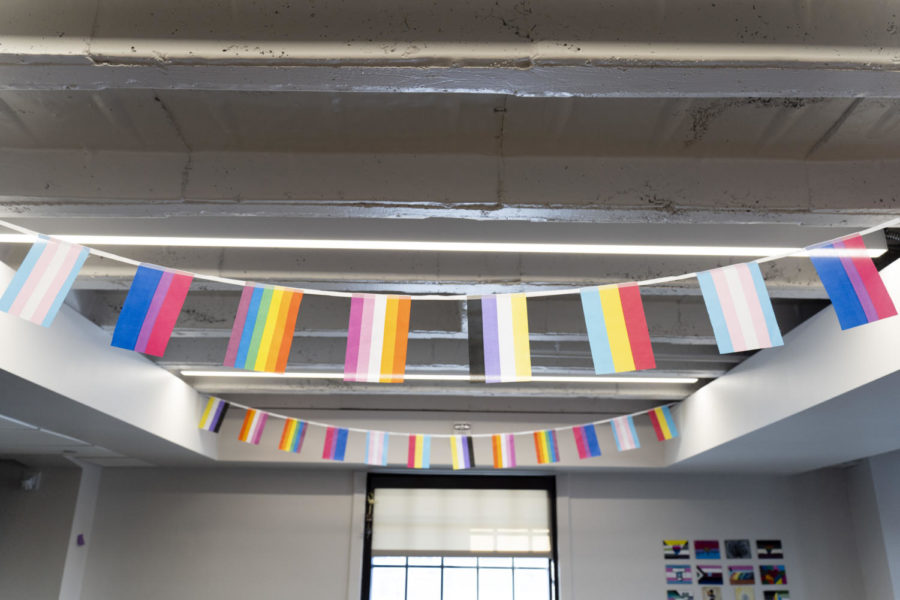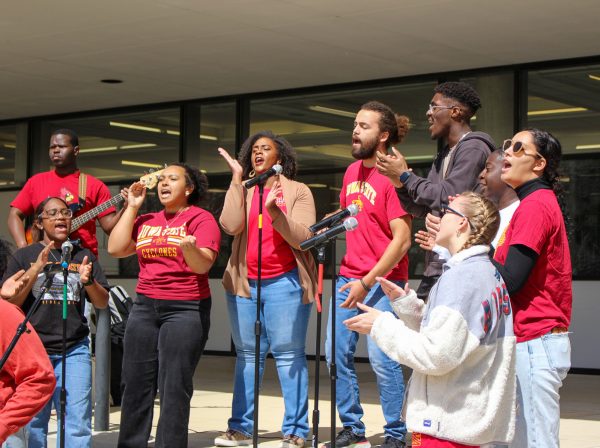Students push for gender inclusivity through on-campus identity-related socials
Pride flags are displayed at the Center for LGBTQIA+ Student Success in the Memorial Union.
Iowa State students attending The Center for LGBTQIA+ Student Success’s gender-expansive socials are pushing for an inclusive environment on campus. This includes Taz Polley, a student who is passionate about pronoun usage in the classroom.
Iowa State’s campus climate assessment reports that students identifying as transgender, genderqueer or nonbinary have felt that identity is not a concern. Eighteen percent of students identifying with these identities have reported feeling uncomfortable with campus climate, and 19% reported feeling uncomfortable with the climate of their classes, according to the survey.
This school year, the Center has focused on holding identity-based socials to provide students the space to meet new people, make connections and receive support from other members of the LGBTQIA+ community.
The Center envisions Iowa State as an inclusive place free of all oppression, and its goal is to develop personal and academic success for LGBTQIA+ students.
Some non-binary students feel that more must be done to ensure inclusivity on campus.
“Something to change, on a professor level, would be more awareness for students who are trans and nonbinary because yes, you have students who are nonbinary, and students have classmates who are nonbinary,” said Polley, a senior majoring in math education.
The idea that there are only two genders is called a “gender binary” because binary means “having two parts,” in this case male and female, according to the National Center for Transgender Equality website.
Nonbinary is a term people use to describe genders that do not fall into the binary of male or female.
More terms are genderqueer, agender, bigender and genderfluid, which all have distinct meanings. For example, agender refers to someone who is gender-free or gender-neutral.
Most recently, the Center held a social for non-binary, genderfluid and agender students. These socials allow groups of students to meet each other through the Center and form a tight-knit community.
“One word I would use to describe the Center would be family,” said Nova Schemmel, a senior majoring in industrial technology.
Students who frequent the Center encourage everyone to use preferred names and pronouns to make campus more inclusive for everyone.
“Making a space where I don’t feel aggressive about correcting my gender to someone is important because I have had that happen, and I feel bad correcting them even though I shouldn’t,” Polley said.
Your donation will support the student journalists of the Iowa State Daily. Your contribution will allow us to purchase equipment, send our student journalists to conferences and off-set their cost of living so they can continue to do best-in-the-nation work at the Iowa State Daily.

















